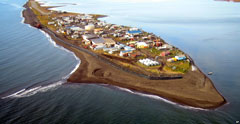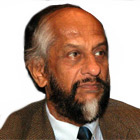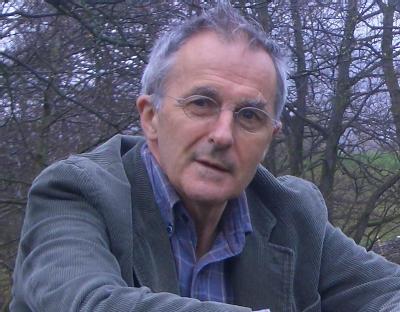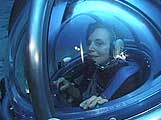 Stephen Sackur took the BBC’s HARDtalk programme on the road in Alaska in a climate change episode screened a few days ago. It was the kind of aware and intelligent journalism one hopes to see on the topic, and deserves plaudits. Not that it exceeded what we have a right to expect from major mainstream television, but it was all the more welcome because the medium so rarely tackles the climate change question. It also represented a considerable advance on the Sackur interview I discussed on Hot Topic a couple of years ago when he attacked Rajendra Pachauri and the IPCC on spurious grounds.
Stephen Sackur took the BBC’s HARDtalk programme on the road in Alaska in a climate change episode screened a few days ago. It was the kind of aware and intelligent journalism one hopes to see on the topic, and deserves plaudits. Not that it exceeded what we have a right to expect from major mainstream television, but it was all the more welcome because the medium so rarely tackles the climate change question. It also represented a considerable advance on the Sackur interview I discussed on Hot Topic a couple of years ago when he attacked Rajendra Pachauri and the IPCC on spurious grounds.
Sackur began in the coastal Inuit village of Kivalina, whose days are numbered as sea ice disappears and storm surges are unimpeded. (I reviewed Christine Shearer’s book on Kivalina in 2011.) The programme was stark in its Alaskan juxtapositions. On the one hand it detailed some of the impacts of climate change on Inuit communities. Kivalina is not alone. Retreating ice, slowly rising sea levels and increased coastal erosion have left three Inuit settlements facing imminent destruction, and at least eight more at serious risk. The town of Barrow depends on bowhead whale and seal hunting which is now affected very badly by the early breakup of sea ice.

 I wondered what Stephen Sackur might want to put to Rajendra Pachauri when he interviewed the IPCC chair on BBC’s Hardtalk this week. His agenda turned out to be depressingly predictable for the most part. The opening was not encouraging. Sackur referred to other options than a global climate deal in view of the stalled international negotiations, mentioning the abandonment of the Kyoto approach
I wondered what Stephen Sackur might want to put to Rajendra Pachauri when he interviewed the IPCC chair on BBC’s Hardtalk this week. His agenda turned out to be depressingly predictable for the most part. The opening was not encouraging. Sackur referred to other options than a global climate deal in view of the stalled international negotiations, mentioning the abandonment of the Kyoto approach  “I recommend that the BBC takes a less rigid view of ‘due impartiality’ as it applies to science (in practice and not just in its guidelines) and takes into account the non‐contentious nature of some material and the need to avoid giving undue attention to marginal opinion.” This is one of the recommendations of a review commissioned last year by the BBC Trust from
“I recommend that the BBC takes a less rigid view of ‘due impartiality’ as it applies to science (in practice and not just in its guidelines) and takes into account the non‐contentious nature of some material and the need to avoid giving undue attention to marginal opinion.” This is one of the recommendations of a review commissioned last year by the BBC Trust from  I stumbled across a documentary programme on BBC World during the weekend,
I stumbled across a documentary programme on BBC World during the weekend,  “We are committed to developing deepwater energy supplies offshore.†Those blunt words from the US Administration were put to oceanographer Sylvia Earle by Stephen Sackur late in a captivating
“We are committed to developing deepwater energy supplies offshore.†Those blunt words from the US Administration were put to oceanographer Sylvia Earle by Stephen Sackur late in a captivating